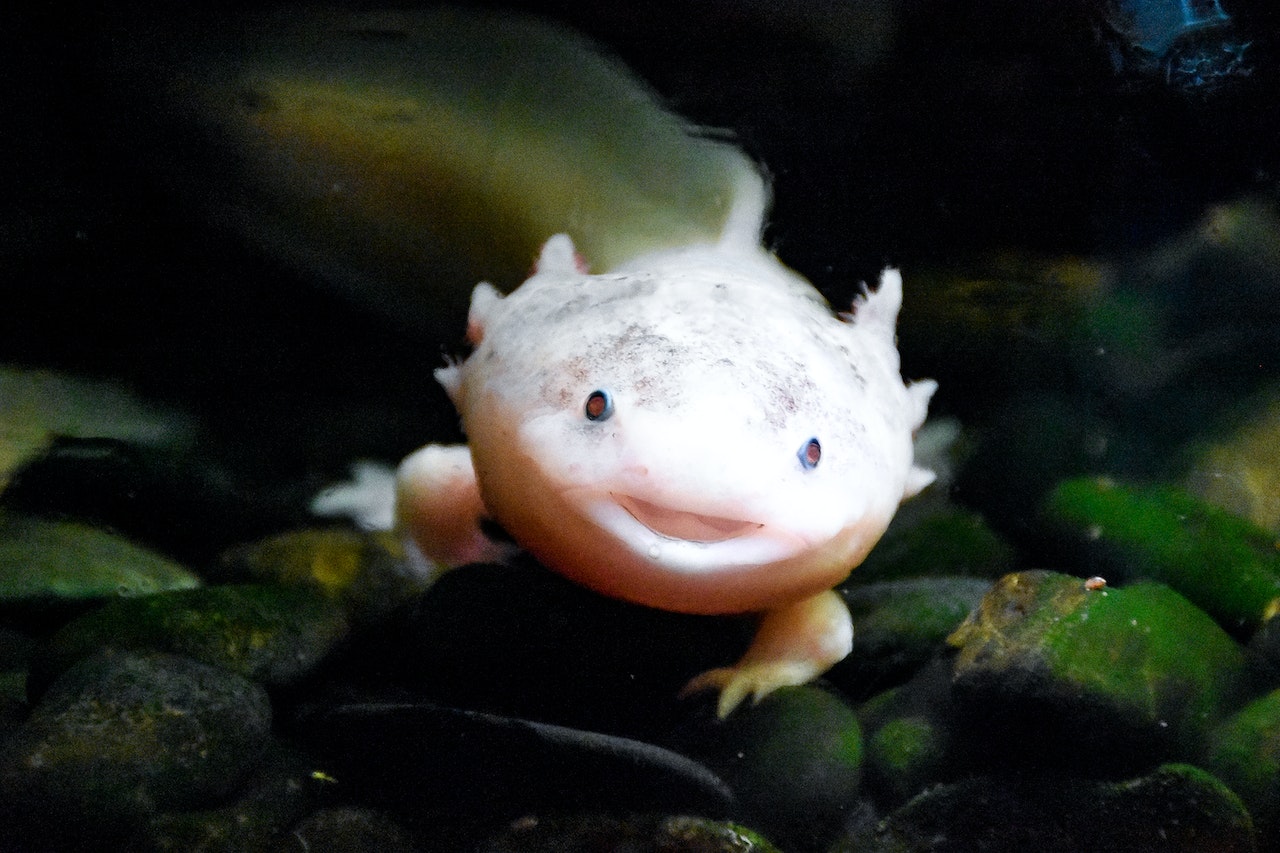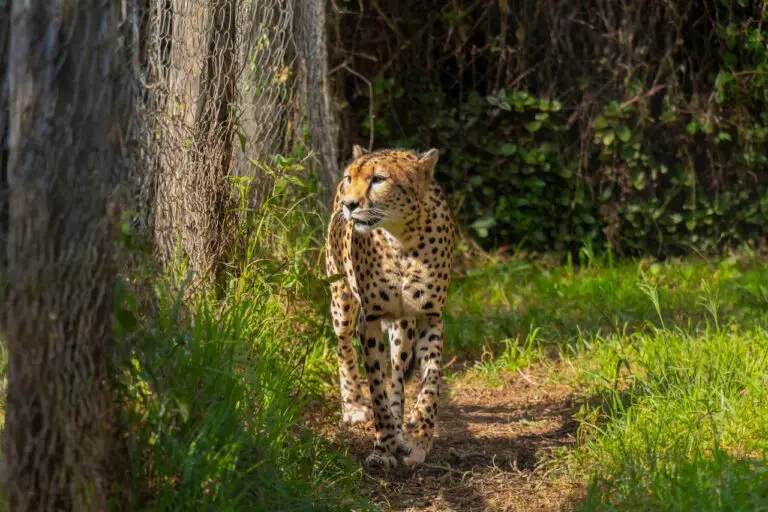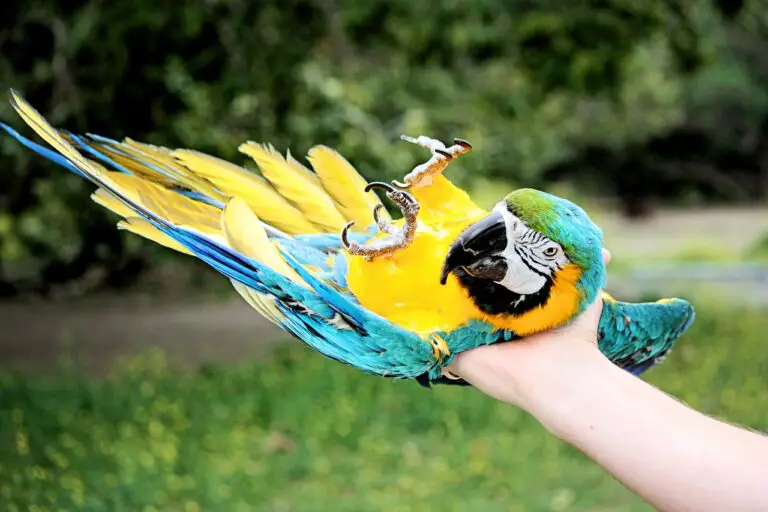Unusual Exotic Pets: Top 5 Most Unique and Interesting Pets
Exotic pets are animals that are not commonly kept as pets. While cats, dogs, fish, and hamsters make up the majority of household pets, some people opt for more unusual and exotic companions.
When cared for properly, exotic pets can make for fascinating friends. This article explores 5 of the most unique and interesting exotic pets.
Key Takeaways
| Takeaway | Details |
|---|---|
| 1. Sugar Gliders | – Small marsupials native to Australia/Indonesia – Nocturnal, social, and energetic – Require large cages and live in pairs/groups |
| 2. Fennec Foxes | – Tiny foxes from North Africa – Energetic and vocal – Illegal in most states without a permit |
| 3. Capuchin Monkeys | – Intelligent New World primates – Illegal in most states without a permit – Require extensive space and enrichment |
| 4. Skunks | – Odorless when descented – Intelligent, playful, and affectionate – Legal in most states |
| 5. Tarantulas | – Docile and slow-moving spiders – Low-maintenance pets – Legal in most states |
1. Sugar Gliders
Sugar gliders are small, wide-eyed marsupials native to Australia, Indonesia, and New Guinea. These adorable exotic pets are named for their predilection for sweet foods like fruit and nectar, and their ability to glide through the air on folds of stretchy skin called a patagium.
Some key facts about sugar gliders:
- Size: 4 – 6 inches long; weigh 4 – 6 ounces
- Lifespan: 12-15 years in captivity
- Diet: Omnivorous; enjoy insects, fruit, vegetables, and specialized glider food
- Behavior: Nocturnal, social, and energetic
- Legality: Legal in most U.S. states
Sugar gliders make endearing pets when properly socialized, though they do require specific care and housing requirements. They should be kept in roomy, tall cages or aviaries to give them space to climb and glide. A bonded pair or small group is ideal, as they are highly social animals. Their inquisitive nature and ability to bond closely with their owners makes them a truly special pocket pet!
2. Fennec Foxes
With their enormous, bat-like ears and petite frames, fennec foxes look like tiny foxes straight out of a storybook. These tiny canids hail from the deserts of North Africa.
Some key facts about fennec foxes:
- Size: 9 – 16 inches long; weigh 2 – 3.5 pounds
- Lifespan: 10-14 years in captivity
- Diet: Omnivorous; enjoy insects, small mammals, fruit, vegetables
- Behavior: Nocturnal, energetic, and vocal
- Legality: Legal in some U.S. states with a permit
Fennec foxes are illegal to own without a permit in most states, as they are classified as an exotic animal. Their energetic and demanding nature also makes them a challenging exotic pet suited only to experienced owners.
However, for someone willing and able to provide for their extensive needs, fennec foxes can be extraordinarily rewarding pets. Their playful nature and loving personalities have earned them a small but devoted following.
3. Capuchin Monkeys
Capuchin monkeys are New World primates named for their “hood” or capuche-like fur. Two popular species kept as pets are the tufted capuchin and white-fronted capuchin.
Some quick facts:
- Size: 1 – 2.5 feet long; weigh 3 – 9 pounds
- Lifespan: 15-25 years
- Diet: Omnivorous; enjoy fruits, veggies, nuts, insects, small vertebrates
- Behavior: Playful, intelligent, social
- Legality: Prohibited in most states
Capuchin monkeys are illegal to own without a permit in most states, as they are classified as exotic animals. They need extensive space and enrichment. With the right owner, capuchins can be playful, mischievous pets. However, poor care often leads to behavioral issues and abandoned monkeys. Extensive research is required before considering one of these primates.
4. Skunks
When it comes to unusual pets, skunks certainly make the list! While most famous for their smelly spray, skunks can actually make delightful pets when their scent glands are removed.
Some skunk facts:
- Size: 6 – 19 inches long; weigh 4 – 14 pounds
- Lifespan: 6 – 10 years as pets
- Diet: Omnivorous; enjoy fruits, veggies, eggs, insects, small vertebrates
- Behavior: Intelligent, playful, and social
- Legality: Legal in most U.S. states
Skunks are inquisitive, intelligent animals that can be litter-trained. When raised from a young age, they bond closely with their owners and love snuggling and playing. Their unique look and friendly personalities make them an uncommon but rewarding pet for the right owner. Just be sure to find a vet who can descented skunks before bringing one home!
5. Tarantulas
For the ultimate in exotic pets, look no further than tarantulas! These giant, hairy spiders inspire fascination and fear in equal measure.
Some quick tarantula facts:
- Size: 4 – 12 inches long
- Lifespan: 5-30 years depending on species
- Diet: Insectivorous; enjoy crickets, roaches, mealworms
- Behavior: Mostly docile and slow-moving
- Legality: Legal in most states
Despite their intimidating appearance, most tarantula species make very easy pets as long as proper handling techniques are used. Their beautiful colors and gentle demeanors have earned them a following of devoted arachnophiles. If you’re looking for a low-maintenance pet full of wow-factor, a docile tarantula species may be the perfect choice.
Caring for Exotic Pets
While exotic pets captivate our imaginations, caring for them requires extensive research and preparation.
Here are some key considerations if you’re interested in an exotic pet:
Do Your Research
- Learn everything you can about a species’ needs before bringing one home. Diet, housing, enrichment, exercise, socialization, and veterinary care should all be researched in-depth.
- Join online forums and exotic pet communities to connect with experienced owners. Their insights will be invaluable.
- Exotic pets often have very specific environmental and dietary needs. Make sure you can realistically provide for these before committing.
Ensure Legality
- Laws regarding exotic pet ownership vary greatly by state and municipality. Many ban private ownership of non-domesticated animals.
- Obtain all necessary permits and licenses before acquiring an exotic pet. Even if legal where you live, there are often regulations to follow.
- Some states require owners to microchip and/or register exotic pets. Stay in compliance to avoid having your pet confiscated.
Find an Exotics Vet
- Having access to a qualified exotics vet is crucial. Many vets refuse to see non-traditional pets.
- Ask exotic pet communities for vet recommendations in your area. Establish a relationship before you need their services.
- Some vets will make house calls if you own a large exotic animal that is difficult to transport.
Give Proper Housing
- Recreate your exotic pet’s natural habitat as closely as possible. Proper housing is key to good health and behavior.
- Make sure enclosures meet all space, lighting, temperature, humidity and enrichment requirements.
- Give outdoor/indoor access when appropriate. Many exotics thrive when given both environments.
- Social species should be kept with compatible conspecifics for companionship. Solitary housing often leads to stress.
Be Prepared for Challenges
- Exotic pets require a massive commitment. Many outlive their owners or are rehomed due to inadequate planning.
- They can be expensive, demanding, and require very specialized care compared to domestic pets.
- Certain species are not suitable pets for first-time owners or households with small children. Do your homework!
- Have an emergency plan and funds set aside for unexpected veterinary costs. Exotic medical care is pricey.
5 Benefits of Owning an Exotic Pet
Exotic pets require extra effort and care compared to traditional domestic animals. However, they can provide unique benefits and rewards to the properly prepared owner.
Here are 5 advantages of sharing your home with an unusual companion.
1. Forming a Unique Bond
Few bonds compare to that between an exotic pet parent and their unusual dependent. The time invested in specialized care forges an extraordinary connection. Exotics often seem to return the dedication of their owners with equal devotion.
2. Learning and Discovery
Caring for species with specialized needs leads to constant learning and discovery. As you research your exotic’s native habitat, behaviors, and needs, you gain valuable knowledge and perspective. This passion for learning extends well beyond just your pet’s species.
3. Conquering Fears
For some exotic pet owners, part of the appeal is facing down fears of the unknown or misunderstood. Handling species with frightening reputations can empower owners and breed compassion through understanding.
4. Belonging to a Community
The exotic pet community shares information, resources, and support. Connecting with fellow exotic enthusiasts provides camaraderie, advice, and people who share your passion.
5. Sharing a Unique Pet
Having an exotic pet often sparks interest and intrigue when you share them with others. Educating those unfamiliar with your unusual companion can be very rewarding. You’ll enjoy watching reactions to your exotic pet!
Is an Exotic Pet Right for You?
Before seeking an exotic pet, carefully reflect on your abilities as a prospective owner:
- Do you have the space, time, funds, and access to veterinary care required?
- Are you prepared to potentially outlive your exotic pet and care for it for life?
- Can you provide an environment tailored to all of your exotic’s needs?
- Are you comfortable with specialized diets, waste cleanup, and handling?
- Do you have a backup plan if you can no longer care for your exotic?
If you can confidently answer “yes” to all of the above, an exotic may be a good fit! Just be sure to select a species suited to your experience level. With proper commitment, almost any animal can thrive under human care. By providing a great home to one of these unique species, you’ll be rewarded with an extraordinary pet.
Conclusion
Exotic pets provide the dedicated owner with a truly unique companionship experience. While exotic pet ownership is not for everyone, those with the resources, dedication, and access to proper care can find great fulfillment in sharing their lives with these remarkable species. With extensive research and preparation, you may find your perfect exotic match.
If after reviewing the needs of the species you are interested in you feel you can provide a safe, healthy, and enriching home, an exotic pet may be right for you. Work to establish relationships with experienced owners and exotic vets before bringing one home. The exotic pet community is also key for ongoing support. While rewarding, caring for these unusual animals is a massive commitment.
By providing the best possible care to our exotic animal companions, we can promote the welfare of these fascinating creatures. If you have the means to properly provide for an exotic pet, few bonds compare to the one you will share. Just be sure to put their wellbeing first. With adequate space, enrichment, diet, exercise, veterinary care, and your endless compassion, your exotic pet is sure to live a long, happy, and healthy life in your care.
Frequently Asked Questions
What are the most unique exotic pets I can own?
The article discusses 5 of the most unique exotic pets – sugar gliders, fennec foxes, capuchin monkeys, skunks, and tarantulas. These unusual animals make for fascinating companion animals when properly cared for.
Are any of these exotic pets legal to own without a permit?
Skunks and tarantulas are legal to own without a permit in most U.S. states. However, fennec foxes, capuchin monkeys, and sugar gliders are illegal to own without the proper exotic pet permits.
Which of these exotic pets is best suited for beginners?
Of the pets discussed, skunks and tarantulas tend to be better choices for first-time exotic pet owners. Fennec foxes, monkeys, and sugar gliders have more complex care requirements best managed by experienced owners.
What are some key care requirements for these exotic pets?
All of these species need sizable enclosures that recreate their natural habitats. Most are highly social and require companionship. Their diets can be specialized. Vet care may also be difficult to find. Do extensive research before bringing one home!
Where can I connect with other exotic pet owners for advice?
Online exotic pet forums are great places to get guidance from experienced owners. Connecting with local exotic pet meetup groups can also allow you to learn from fellow enthusiasts in your area.
Peter Stones is the founder of Exotic Pets Place, the leading online resource for exotic pet care information.
With over 10 years of hands-on exotic pet ownership experience, he is deeply passionate about sharing his expertise to help others properly care for their unusual pets.
When he's not writing extensively researched articles or connecting with fellow exotic pet enthusiasts worldwide, you can find Peter at home tending to his own beloved menagerie of exotic animals.


![Exotic Pet Breeding Ethics A Comprehensive Guide [+ FAQs], two goats in a field](https://exoticpetsplace.com/wp-content/uploads/2023/06/Exotic-Pet-Breeding-Ethics-A-Comprehensive-Guide-FAQs-two-goats-in-a-field-768x740.jpg)




